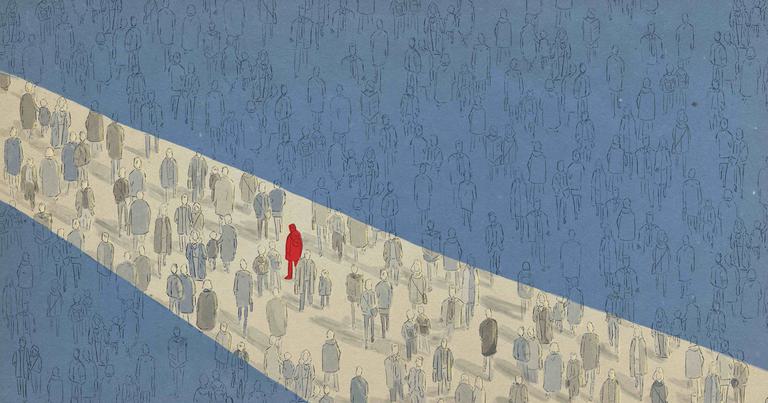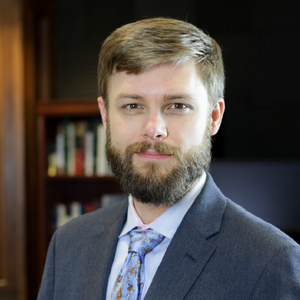
Culture & the Family
Trent England | April 21, 2020
The many shades of social distancing
Trent England
You and I are at a lunch counter. It’s crowded and we’re sitting shoulder-to-shoulder. If I have a cold, you have a real risk of catching it. When you and I are six inches apart, increasing the distance between us by just two or three feet should dramatically reduce your risk of catching my cold. Adding six feet of space might (depending on other variables) make it almost impossible for me to get you sick.
What if we’re at a more spacious lunch counter? You and I are already sitting six feet apart. If we add another six feet, how much difference does that make?
That is a problem science can solve, sort of. There are all kinds of variables: air temperature, humidity, my particular symptoms. But even without all that, we know that the first six feet is far more important than the second six feet.
And what if we add another six feet, and another? Or sixty feet? Obviously, we quickly reach a point where any reasonable person will see that the benefit shrinks to be negligible.
Then again, an unreasonable person or pandering politician could make the following argument.
“There must be some benefit to moving from 6 to 60 feet apart. Nobody knows for sure what that benefit is. Therefore if you do not support extending social distancing by another 54 feet, you don’t care about human lives.”
This is the argument for radical shutdowns and “shelter-in-place” decrees. These go beyond social distancing—beyond the first six feet, or a mask, or other basic (but very efficient) protections—to impose much more extreme barriers. They assume some benefit and ignore costs. Politicians tend to get credit for their good intentions—the hypothetical benefits—while the costs fall on other people—those who lose their jobs.
One final example: smoke alarms. If a house has no smoke alarms, you can reduce the risk of death from a house fire by installing one in each bedroom. The cost is low, the benefit is significant. But what if we put them in every closet, or installed two or three in every bedroom? There would be some benefit—redundancy, at least. But the benefit would be small and the costs start adding up.
Even preening politicians don’t install seven smoke alarms in each bedroom of their home. They understand that the value of a second smoke alarm is more than zero but much less than the value of the first one. They can evaluate costs and benefits, even when the question involves human lives. Hopefully, as the hysteria around COVID-19 subsides, they can also think rationally about how to save human lives while minimizing the damage done to society.

Trent England
David and Ann Brown Distinguished Fellow
Trent England is the David and Ann Brown Distinguished Fellow at the Oklahoma Council of Public Affairs, where he previously served as executive vice president. He is also the founder and executive director of Save Our States, which educates Americans about the importance of the Electoral College. England is a producer of the feature-length documentary “Safeguard: An Electoral College Story.” He has appeared three times on Fox & Friends and is a frequent guest on media programs from coast to coast. He is the author of Why We Must Defend the Electoral College and a contributor to The Heritage Guide to the Constitution and One Nation Under Arrest: How Crazy Laws, Rogue Prosecutors, and Activist Judges Threaten Your Liberty. His writing has also appeared in the Wall Street Journal, USA Today, Washington Times, Hillsdale College's Imprimis speech digest, and other publications. Trent formerly hosted morning drive-time radio in Oklahoma City and has filled for various radio hosts including Ben Shapiro. A former legal policy analyst at The Heritage Foundation, he holds a law degree from The George Mason University School of Law and a bachelor of arts in government from Claremont McKenna College.